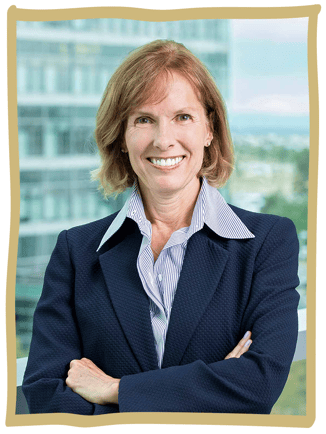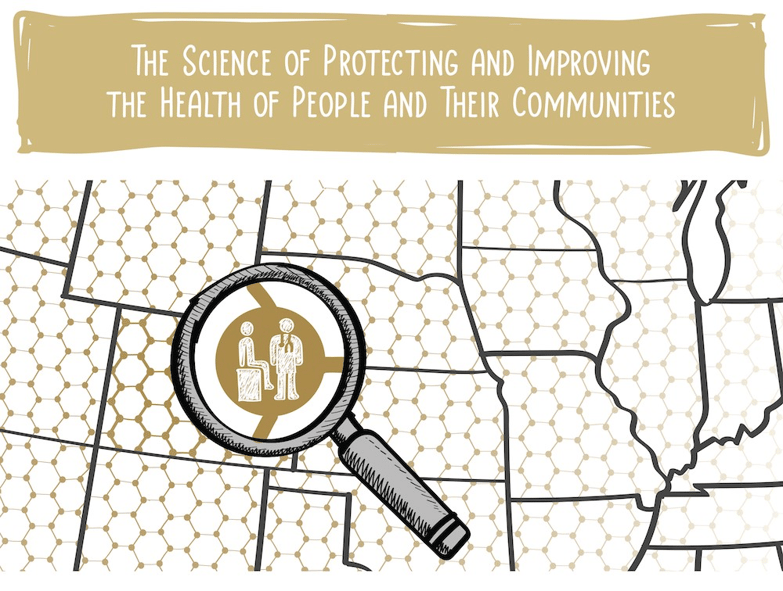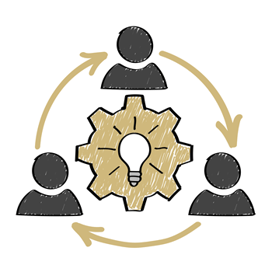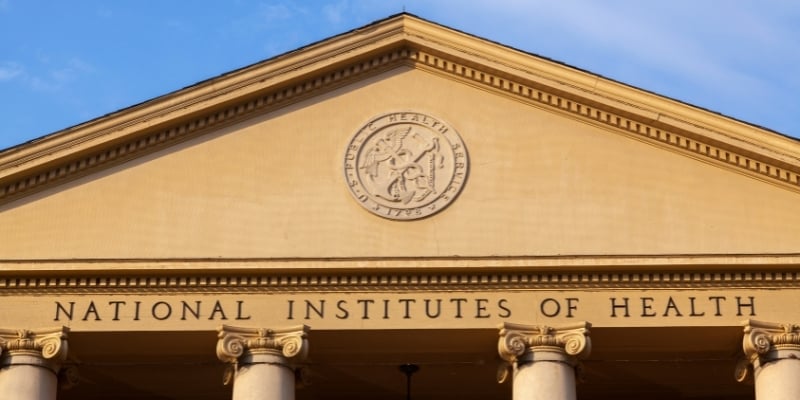Behind every exceptional leader lies a firm and ardent conviction. For Cathy Bradley, PhD, the newly minted, first permanent woman dean of the Colorado School of Public Health, it is a fundamental belief that health drives success. This belief is the compass by which she has built and steered a career dedicated to solving problems and removing social barriers in the sphere of public health, and that shall continue to guide her in this new venture as dean. For Bradley, there is no higher calling than the mission to fight the disparities that render our communities unequal.

"Every serious issue that we deal with, every crisis, it’s a health crisis," said Bradley. "Or they are issues that target our health and well-being. The role of public health is critical because it removes those problems that hinder the success we’re all capable of."
Much of Bradley’s work to date has centered on researching the economic effects of cancer on our society – a crucial aspect of the disease that is often swept under the rug. Cancer remains a severely costly condition to treat, opening questions around who can receive treatment and who can’t. Depending upon a patient’s economic situation, the price of treatment options can range from crippling to a complete impossibility. From varying restrictions of health insurance policies to a lack of insurance altogether, the chasm of health disparity is starkly apparent.
“If you have to work to continue your health insurance, it probably doesn’t matter how sick you are, you’re going to find a way to go to work,” said Bradley. “Women who have kids, have everyone covered on their health insurance policy and who need treatment for breast cancer, but it conflicts with work – they’re going to reschedule their chemotherapy.”
It’s these kinds of problems that Bradley is passionate about solving, the problems that highlight the cracks in our healthcare system.
“Public health means benefiting the whole population at a fundamental level,” said Bradley. “It facilitates medicine. We live in a highly connected society, we’re all impacted. So, if everyone can’t get or afford treatment, then we continue to have disparities and the people who need care are left out. These are the issues that really drew me in to the field.”
Bradley first joined CU Anschutz in 2015 as a professor and the Paul A. Bunn Jr. Endowed Chair in Cancer Research. The last five years have seen her serve as deputy director of the University of Colorado Cancer Center and associate dean for research in the ColoradoSPH. Her academic expertise and excellence in partnership contributed to an increase of nearly double the NIH funding for the school as well as an earned spot in the top 20 public health graduate programs in the country.
Now, as dean – an appointment Bradley described as humbling – she is eager to use the scope and influence the position provides to create further momentum for the mission of public health. Bradley intends to think and dream bigger, using formative research ideas as a springboard for asking the right questions and building an infrastructure to advance the school even further and improve the population’s health. And as the first permanent female dean of the ColoradoSPH, she’s ready to hit the ground running.
“I think the perspective that women bring is critical to how we look at problems,” said Bradley. “Women encourage more collaboration, and public health is a collaborative science. What I want to bring to the ColoradoSPH is teamwork, getting everyone moving together in the same direction. When we start to work together then our school, which is already outstanding, can do even better. It’s a role I’m really looking forward to.”
As a Virginia native (and a staunch enthusiast of humid, coastal climates), Bradley had her initial doubts about whether she could make a home in the state of Colorado. In the end, it was the openly collaborative environment of CU Anschutz that drew her in and sealed the deal.
“I was met with people who asked, ‘What can we do to help?’,” said Bradley. “You know, you can visit campuses nationwide with incredible reputations but find an unwillingness to really work together. CU Anschutz not only has the talent but the willingness, as well as desire to be better. So, I was struck by the potential and the opportunities to pull synergies together.”

Her passion for collaboration and views on leadership were shaped at an early age. As a first-generation college student, Bradley obtained her undergraduate degree at a commuter school, balancing her education with a full-time job simply to make it through. When two of her professors, both of whom were involved in research and healthcare policy, took a special interest in her as a student, offering encouragement and guidance, it changed the whole trajectory of Bradley’s career.
“I wouldn’t be here had I not had those two professors see something in me,” said Bradley. “They sparked my interest in public health and my belief that we can change the world.”
Now, in her own position of leadership, Bradley is determined to bring an entrepreneurial mindset and a spirit of empathy to the role.
“As leaders, we have to handle the organizational aspects of the day-to-day, but we also need to listen and build a positive environment for people to flourish,” she said. “Then, what brings the spark is having that instinct of where to go next – observing where the partnerships and alignments exist yet seeing how we can strategically position ourselves to further succeed in our mission. Ultimately, I want to build upon what came before to leave the next dean an even greater launching point.”
This attitude of optimistic stewardship infuses Bradley’s vision for the future. She’s thinking in broader terms now, focusing on positioning the ColoradoSPH as a national leader and training up the next generation of scientists in an empowered, forward-thinking way. A continued partnership with the University of Colorado Cancer Center is also a top priority, as is the aim to draw in philanthropy for the school by getting more people excited about public health.
“Philanthropy is critical to us,” Bradley said. “It affords us the opportunities to build infrastructure, make our education more financially accessible, attract talent and grow in ways we otherwise would not be able to.”
But the impact of an investment in public health goes far beyond what most would expect.
“I want to show benefactors that Colorado can be the model for the rest of the nation,” said Bradley. “Some discoveries have an infinitesimally small chance of ever leaving the lab, but by supporting and improving public health, you are guaranteed to save lives. You’re guaranteed to make a difference.”
This story was originally published in Momentum magazine.



-1.png)


